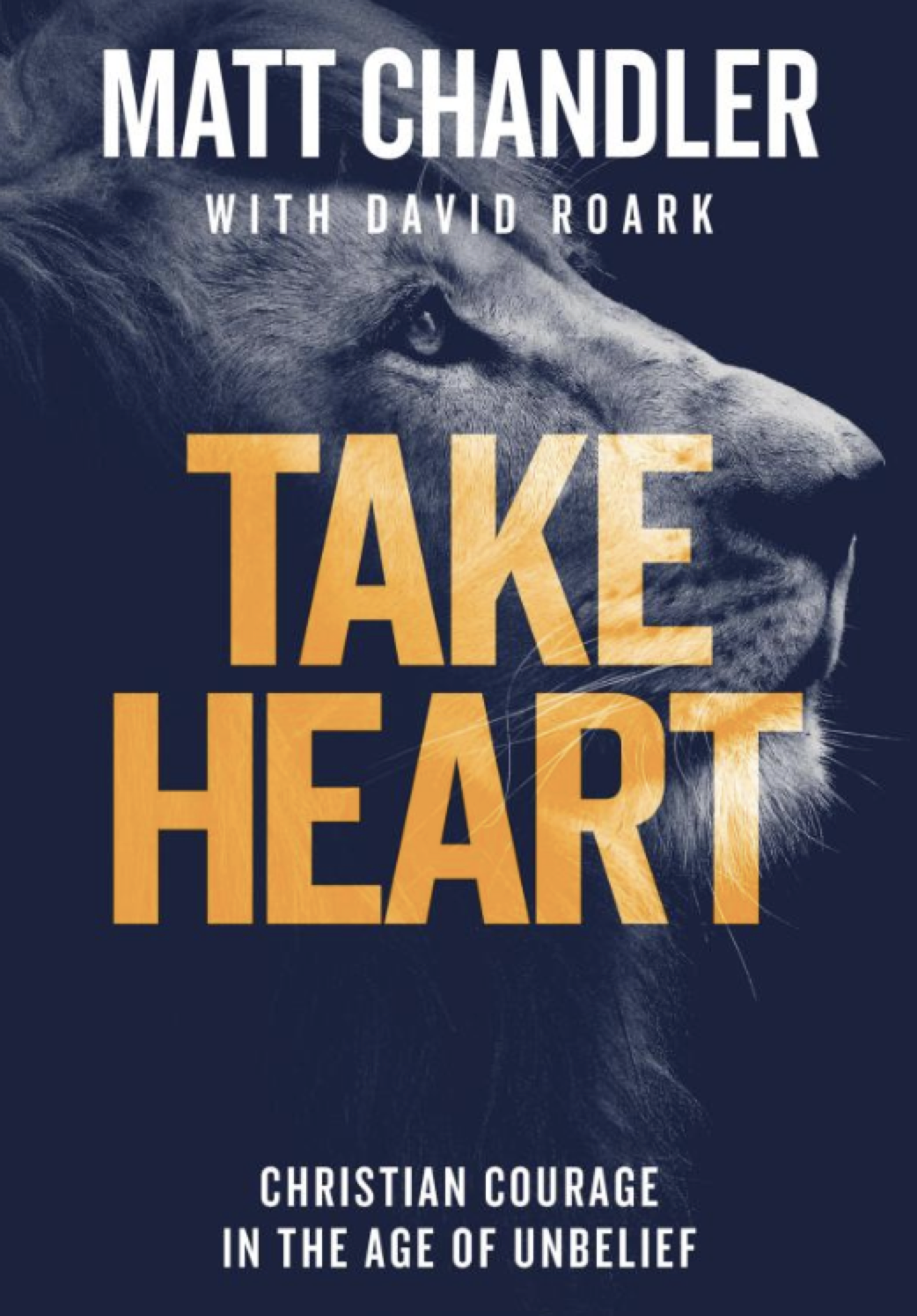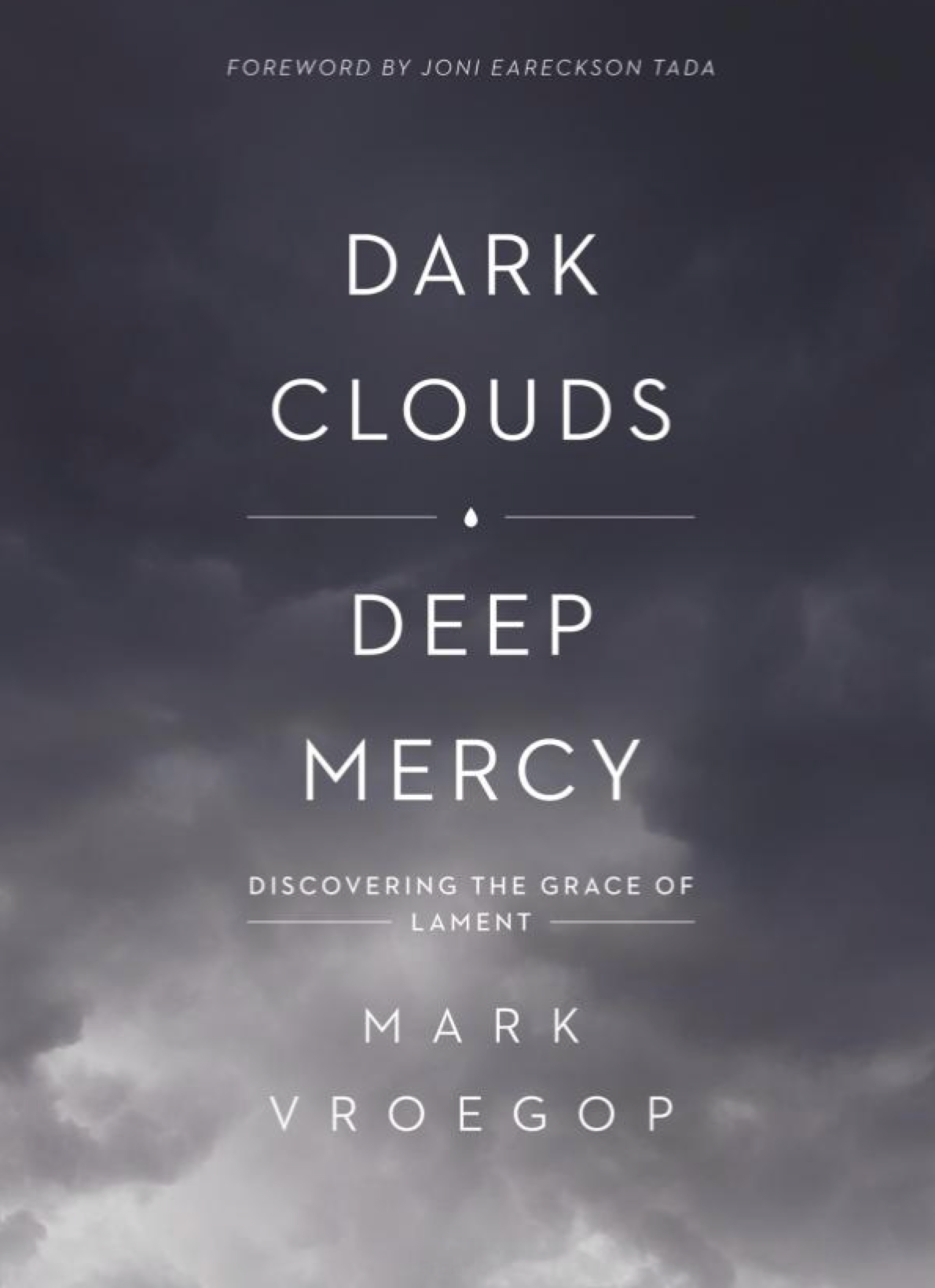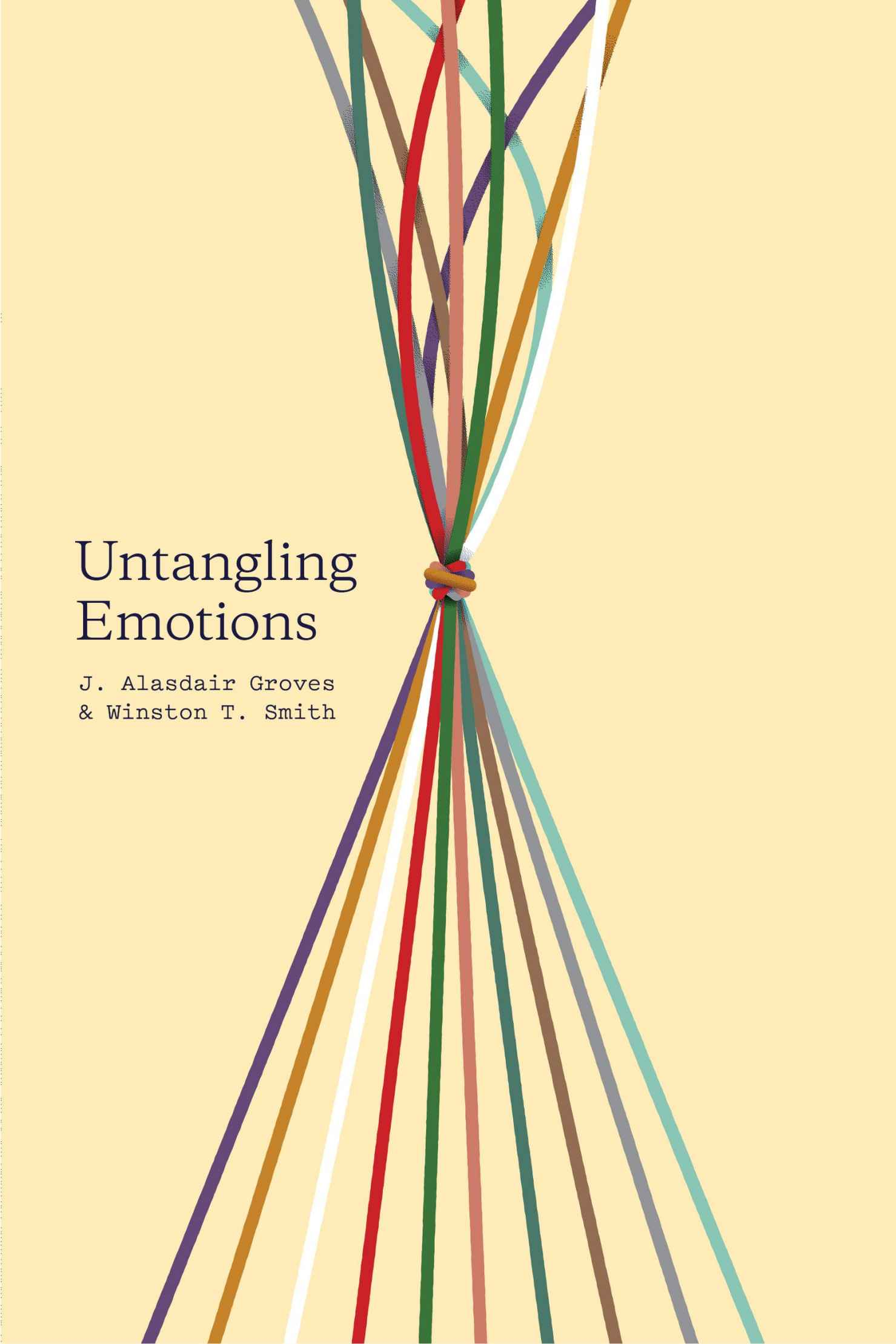I’m excited to have these three books in my near-term queue.

First, we’re going to be going through Matt Chandler’s Take Heart at Vine Church for Sunday school in a couple weeks in order to prepare our hearts for this upcoming election season. The book suggests that the church is meant to thrive even (especially?) in seasons of growing hostility. It’s no secret that the tide is turning against Christianity in increasingly visible ways. This seems all the more obvious as we move into election seasons. I’m excited to see how Chandler encourages us.

Second, I picked up two books that tie into a topic I’m passionate about: proper understanding of Christian emotion. The first is Mark Vroegop’s Dark Clouds, Deep Mercy, a book on lamenting as Christians. This book has come recommended by several folks and I am hopeful that it will be a resource both for my own wrestling with what it is to lament well as believers but also for those I know who are experiencing conflict between the call to joy and feelings of sorrow.

Finally, the third book in line with this one is brand new from long-time CCEF guys Alasdair Groves and Winston Smith: Untangling Emotions. This book sits on one side of a topic I’m hoping to write a ThM on after completing my MDiv in another couple years: What are emotions and how do we deal with them? This book, from a brief look, works through both what emotions are, where they come from, what God intends by them, and how do we live well with them? The authors note that we as Christians often get caught in a double-bind when it comes to emotions: 1) we feel like we should never feel bad emotions and when we do, we conclude we must lack faith or obedience and 2) when we feel good or happy, we view those emotions with a low-grade suspicion and guilt, thinking our good feelings must stem from pride or over-loving creation rather than Creator.[^1] This is a place I think I’ve seen the most inner conflict from fellow believers and am excited are is being written to this end.
For my part, I hope to write on how we extend Christian “Hedonism”[^2] (CH) in a way that addresses our emotions (or lack thereof) in a way that doesn’t lead us into the pit of despair when we don’t “feel” the joy that CH, at first glance, seems to require for us to possess true saving faith. In particular, I am curious to discover what happens at the intersection of Piper’s proposal of CH—namely the experience of joy—as essential for saving faith and depression, a state many have described as follows:
Depression ... involves a complete absence: absence of affect, absence of feeling, absence of response, absence of interest. The pain you feel in the course of a major clinical depression is an attempt on nature’s part ... to fill up the empty space. But for all intents and purposes, the deeply depressed are just the walking, waking dead.[^3]
How do you feel joy when feeling is dead? And therefore, the important question becomes, If feeling joy in God is essential for salvation, can you be saved if you can’t feel anything, much less joy?
There is so much wrapped up in that question in understanding emotions, how God views them and speaks of them, how we experience them, what is truly necessary for salvation, and on and on it goes. Piper himself notes[^4] this area is one that CH needs to explore if it is to remain a viable paradigm for us to think about Christianity. This is a very exciting topic for me and one I’ve felt a keen need for Christians to address well.These books are a big step forward for us in this direction and I am eager to learn and to distill some of this in my own way over the next few years.
[^1]: p. 15.
[^2]: I choose to put the word “hedonism” is in quotes here because I am growing to dislike the term in part because of the philosophical underpinnings of the word and popular understanding of what that term requires for us to be Christians.
[^3]: Elizabeth Wurtzel, Prozac Nation (New York: Riverhead), 22. Quoted in Welch, Edward T.. Depression: Looking Up from the Stubborn Darkness. Greensboro: New Growth Press, 2011, chapter 2. Emphasis mine.
[^4]: See in particular the audio from 8:09-11:26, where he says,
I think one way to describe what needs to be done is to bring Christian hedonism into directed exegetical and theological contact with certain significant themes and realities in Scripture and probe those inter-relationships. I have in mind, for example, saving faith… How is saving faith related to God-glorifying joy in Christ? Or I think a good deal more needs to be done on the nature of love, mainly love towards people… I think the need is great for there to be people with profound insight into the human psyche and profound insight into biblical truth, who can probe the relationship between Christian hedonism and various forms of mental illness from the least serious to the most serious.”

Comments